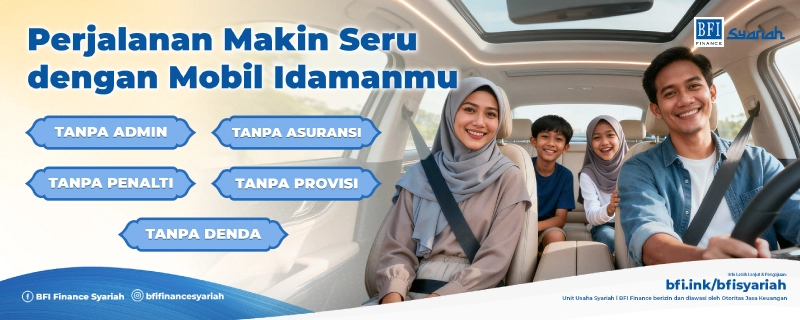Taxes are obligations imposed on citizens by the local government. Citizens' responsibility to pay taxes contributes significantly to the country, as taxes serve as the largest source of national income.
Each country has different types of taxes that its citizens are required to pay, including Indonesia. To help you better understand the types of taxes you need to pay, the BFI Finance team has summarized them for you. Let’s dive in!
1. Types of Taxes Based on Collection Method
1.1 Direct Taxes
Direct taxes are taxes collected directly from individuals. You cannot transfer these taxes to others and must pay them yourself.
A common example of direct tax is Income Tax (PPh). There are several types of PPh, such as PPh 21 for employees, PPh 25 for corporate income, and PPh 29. For instance, PPh 21 is an income tax paid by individuals who have a salary or income. If you look at your payslip, you'll see the "PPh 21" deduction, which the company withholds directly.
Another example is Land and Building Tax (PBB). If you own property like a house or building, you are required to pay taxes on that land and property.
1.2 Indirect Taxes
Indirect taxes are taxes that can be shifted to others because they are not imposed directly on individuals or entities.
The most common example is Value Added Tax (VAT). VAT is often charged in restaurants on food or drinks consumed by customers. Here, the restaurant is the taxpayer, but the tax is passed on through the food and drink prices, so you, as a consumer, end up paying the tax indirectly.
2. Types of Taxes Based on Nature
This classification determines the tax amount for individuals or entities.
2.1 Subjective Taxes
Subjective taxes are based on the taxpayer’s ability to pay, focusing on the 'subject.' This tax adapts to each person or company's situation. Imagine being in a class where those with more resources contribute more to class fees. Similarly, people with higher incomes are expected to contribute more to the country.
This tax type aims to promote fairness by encouraging those who can afford to contribute more to the country.
2.2 Objective Taxes
Objective taxes, on the other hand, focus on the 'object,' such as the goods or services a person or company owns or uses. The tax amount depends on the item’s value, not on the taxpayer's income level.
This tax is intended to fairly distribute the tax burden among those who use specific goods or services. For example, when you buy food, you pay VAT. The VAT amount depends on the food price, not your income level.
3. Types of Taxes Based on the Collecting Authority
3.1 Central Taxes
These are taxes managed and collected by the national government, administered by the Directorate General of Taxes (DJP). Central taxes support national policies and budgets, such as building schools, providing healthcare assistance, and constructing roads.
3.2 Regional Taxes
As the name suggests, regional taxes are collected by local governments at the provincial level. They fund local projects and needs, with tax rates varying between provinces and cities/regencies.
Examples of provincial taxes include Motor Vehicle Tax (PKB), Cigarette Tax, Motor Vehicle Fuel Tax (PBB-KB), Vehicle Ownership Transfer Fee (BBNKB), and Surface Water Tax. Meanwhile, city or regency taxes include Entertainment Tax, Restaurant Tax, Parking Tax, Hotel Tax, and more.
4. Why is Paying Taxes Important?
Essentially, paying taxes is the duty of every income-earning citizen. According to CNBC Indonesia, here are some reasons why paying taxes is important:
4.1 Public Facilities
The taxes you pay each month are used by the government to develop and maintain public facilities. This includes infrastructure (roads, bridges, airports, seaports), public services (public transport, schools, hospitals, health centers), and environmental management (waste processing, sanitation, etc.). All are funded by citizens' tax contributions.
4.2 Government Subsidies
Besides public facilities, taxes are also used by the government to provide subsidies to underprivileged communities. These subsidies aim to improve welfare and ensure a fair distribution of income. Common subsidies include those for fuel, electricity, and essential goods.
4.3 Helping to Improve Community Welfare
By paying taxes, you contribute indirectly to society’s welfare. Through taxes, you help underprivileged communities and enhance the quality of life in the country by supporting adequate public facilities.
Dear BFI friends, this is what you need to know about the types of taxes in Indonesia. By paying taxes, you are contributing to the country. Let's stay tax-compliant!
—
BFI Finance is a finance company that offers loans secured by Motorcycle BPKB, Car BPKB, and property certificates. Enjoy up to 95% of asset value disbursement for Motorcycle and Car BPKB with competitive interest rates at BFI Finance. BFI Finance is officially licensed and supervised by the Financial Services Authority (OJK). For any financial need, #SelaluAdaJalan with BFI Finance.







